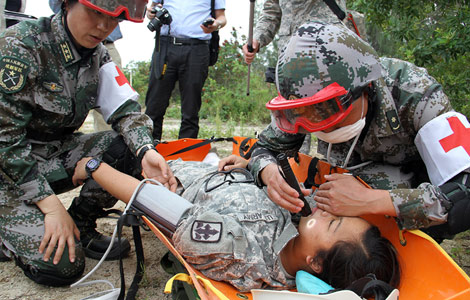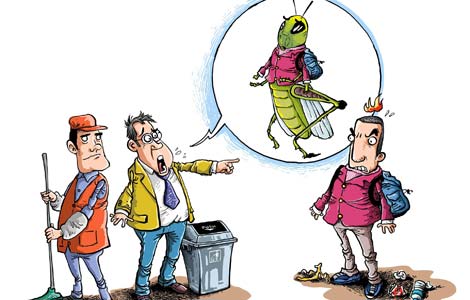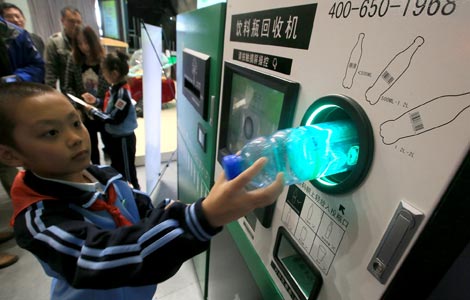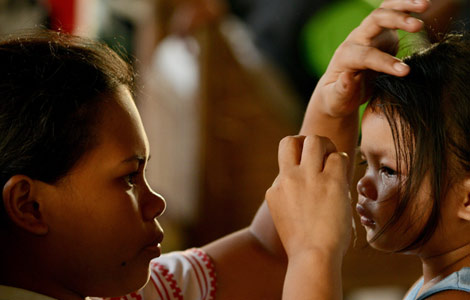Party sets course for next decade
Updated: 2013-11-16 02:36
(China Daily)
|
||||||||
VII—Further opening-up
Efforts are to be made to facilitate overseas companies' entry to China and Chinese companies' expansion abroad.
24. Widen investment access. The finance, education, culture and medical sectors will enjoy an orderly opening-up to market access, while nursery, pension, architecture design, accounting and auditing, trade and logistics, and e-commerce investment restrictions will be eased. Further liberalization will be achieved in general manufacturing, and the streamlining of special customs supervisory areas will be accelerated. Based on practices in the China (Shanghai) Pilot Free Trade Zone, a number of qualified areas will be built into FTAs. Enterprises and individuals will be encouraged to invest overseas and undertake contract and labor cooperation projects at their own risk, through greenfield investment, mergers and acquisitions, equities and joint investment. Investment treaty negotiations with other countries and regions will be expedited.
25. Construction of free-trade zones will be sped up, with adherence to the rules of world trade system and insistence on bilateral, multilateral and regional cooperation. Reforms will be carried out in market access, customs supervision and inspection and quarantine management. Negotiations in emerging issues such as environmental protection, investment protection, government procurement and e-commerce will be accelerated to form a global, high-standard network of free trade zones.
26. Inland and border areas will be further opened up. With the formation of industrial clusters, inland cities will be encouraged to open international passenger and cargo air routes, and develop multimodal transportation. An exchange of information, mutual recognition of supervision and assistance in law enforcement will be achieved among coastal border clearance and port management departments. Special methods and policies will be implemented at key borders, and in bordering cities and economic cooperation zones to promote personnel exchanges, logistics and tourism. Financial institutions focusing on development will be established to accelerate infrastructural connections among neighboring countries and regions.
VIII—Political system
Efforts are to be made to uphold and improve the People's Congress system, the CPC-led multi-party cooperative system and political consultative system, the system of autonomous government in ethnic areas, and the system of grassroots-level mass autonomous government.
27. Push forward the system of people's congresses to keep up with the times. The quality of legislation should be improved to prevent local protectionism and prevent some departments from legalizing their interests. People's congresses should provide more supervision of the government's financial budget and State-owned assets. Governments at all levels must report to the local people's congresses before adopting important policies.
28. Push forward the multi-layer development of the consultative democracy system. Enhance the construction of new types of think tanks with Chinese characteristics. Promote a consultative policy system. Strengthen and develop equal, unified and harmonious ethnic relationships. Governments should seek advice from the local Chinese People's Political Consultative Conference before making important decisions.
29. Develop grassroots democracy. Improve the system of grassroots election, discussion, publicity and responsibility. Improve supervision by urban residents and villagers. Improve the democratic management system, such as the workers' representative conferences, in companies and government institutions.
IX—Rule of law
Efforts are to be made to deepen the reform of the justice system, to protect the people's rights and let the masses feel equality and justice in every court verdict.
30. Uphold the Constitution and laws. Establish a system of legal counsel and improve the review mechanisms on regulations. Give big cities the right to make regulations.
31. Deepen reforms of administrative law enforcement. Centralize administrative powers and allocate more law enforcement resources in key areas, including food production, medicine production and environmental protection. Improve the service quality of urban management.
32. Ensure independence and fairness in courts and prosecuting bodies. Unify the management of staff members and properties of courts and procuratorates below the provincial level. Separate the jurisdiction of courts from administrative divisions.
33. Let the judicial system be more transparent. Record and keep all court files. Strictly regulate procedures of sentence commuting, parole and medical parole.
34. Boost the judicial system to protect human rights. Improve mechanisms to avoid false accusations and confessions obtained through torture. Gradually reduce the number of charges that could lead to a death penalty. Laojiao, or re-education through labor, will be abolished. Meanwhile, strengthen the judicial relief and legal aid system.
- Chinese market to open wider to foreign investors: document
- China to ease family planning policy
- Property prices to stabilize post-plenum: broker
- Experts explain Third Plenum
- Reform agenda inspires foreign investment optimism
- Don't dismiss Third Plenum's broad message, an expert says
- Decoding China's economic reform roadmap
- Decoding China's economic reform roadmap

 3D light show displayed in Shanghai
3D light show displayed in Shanghai
 Chinese, US militaries practice disaster relief
Chinese, US militaries practice disaster relief
 Nation's FDI in US getting more diverse
Nation's FDI in US getting more diverse
 Hit litterbugs with fines, not insults
Hit litterbugs with fines, not insults
 Wu Lei goal keeps alive China's hope in Asian Cup
Wu Lei goal keeps alive China's hope in Asian Cup
 US carrier starts Philippine storm relief
US carrier starts Philippine storm relief
 Treasures under the hammer
Treasures under the hammer
 'Reverse' vending machine sells idea of recycling
'Reverse' vending machine sells idea of recycling
Most Viewed
Editor's Picks

|

|

|

|

|

|
Today's Top News
Deepened reform will help tighten Sino-US links: Xi
Highlights of reform guidline
Map unveiled for profound reform
House OKs health care plans
Chinese market to open wider
Obama would veto healthcare bill
China to abolish labor camp
China seeks climate aid timetable
US Weekly

|

|






